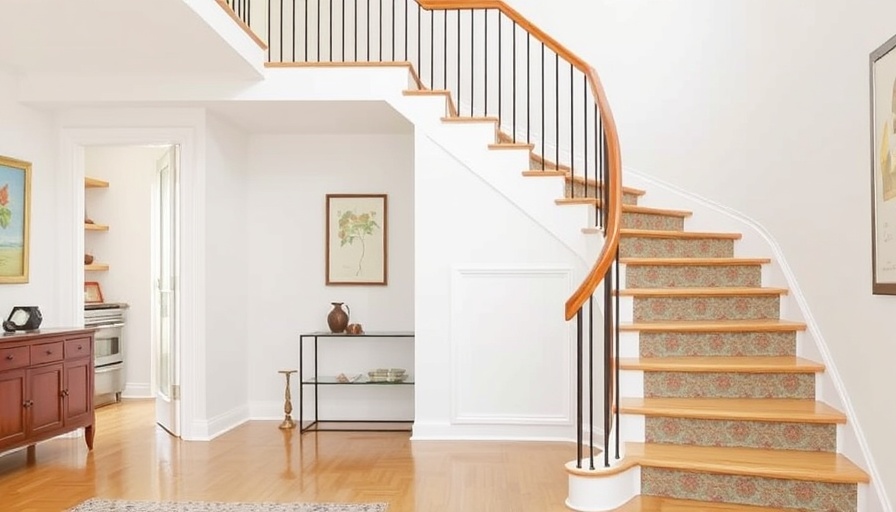
Understanding the Shift Towards Sustainable Countertops
The wave of sustainability has reached the kitchen, where homeowners are increasingly seeking eco-friendly materials for their countertops. A fundamental transformation is underway, particularly in urban areas like London, where consumers are becoming more aware of the environmental impacts of their choices. Traditionally, quartz countertops took center stage due to their durability and aesthetic appeal; however, rising concerns about high silica content and the potential health risks associated with quartz have shifted focus toward safer alternatives. In this guide, we will explore the most sustainable and non-toxic countertop options available today.
The Case Against Quartz Countertops
Although quartz has established itself as a fashionable choice in modern kitchens, recent reports indicate that high-silica engineered stone can pose serious health risks, particularly to fabricators due to airborne silica dust exposure. As the industry moves to ban certain engineered stones in various regions, the urgency for healthier alternatives becomes apparent. Homeowners must question if the traditionally favored quartz is truly the safest option for their homes.
Exploring Sustainable Alternatives
As we pivot away from quartz, several materials emerge as commendable substitutes, each with unique benefits.
- Recycled Glass Countertops: These surfaces are aesthetically versatile, affordable, and composed of reclaimed materials, making them an environmentally conscious choice.
- Paper-based Countertops: Durable yet lightweight, these countertops utilize recycled paper, offering a sustainable design without compromising on performance.
- Porcelain Countertops: Known for their resilience and low water absorption, porcelain provides a stylish, non-toxic option that contributes to a greener kitchen.
- Plastic Countertops (Solid Surfacing): Made from recycled plastics, these surfaces are durable and expansive in color options, perfect for those looking to minimize their carbon footprint.
How to Choose the Best Sustainable Countertop
Making the right decision involves more than just aesthetics; it requires a thorough understanding of a material's sustainability credentials. Consider the following criteria when evaluating your options:
- Zero or Low Silica Content: Prioritize materials that are safe for both the environment and your health.
- Durability: A countertop should withstand everyday wear and tear, hence evaluating longevity is critical.
- Cost: While sustainable options might seem pricier, calculate the long-term savings in maintenance and replacement costs.
- Environmental Impact: Determine the source of the materials, and prefer those that have minimal ecological footprints.
The Importance of Making Informed Choices
Decisions around kitchen renovations go beyond personal desire and aesthetics—they carry implications for health, environmental responsibility, and future generations. With the industry pivoting away from quartz kitchens, now is the time to explore exciting alternatives that prioritize sustainability. Not only do these choices enrich an eco-conscious lifestyle, but they also enhance the living space in unique, aesthetically pleasing ways.
Conclusion: How to Move Forward
For homeowners eager to embrace the future of kitchen design while safeguarding their health and the planet, choosing safe and sustainable countertops is more crucial than ever. Whether you opt for recycled glass, paper, porcelain, or solid-surface plastics, there’s an eco-friendly option that fits your needs. Join the movement towards greener living by opting for sustainable materials in your home improvement projects—your kitchen will thank you.
Take Action Today!
As you embark on your journey to create a sustainable kitchen, consider consulting with local eco-friendly home service experts to guide you through the options available. This step not only assures informed decisions but also fosters a community committed to sustainability in London.
 Add Row
Add Row  Add
Add 




Write A Comment